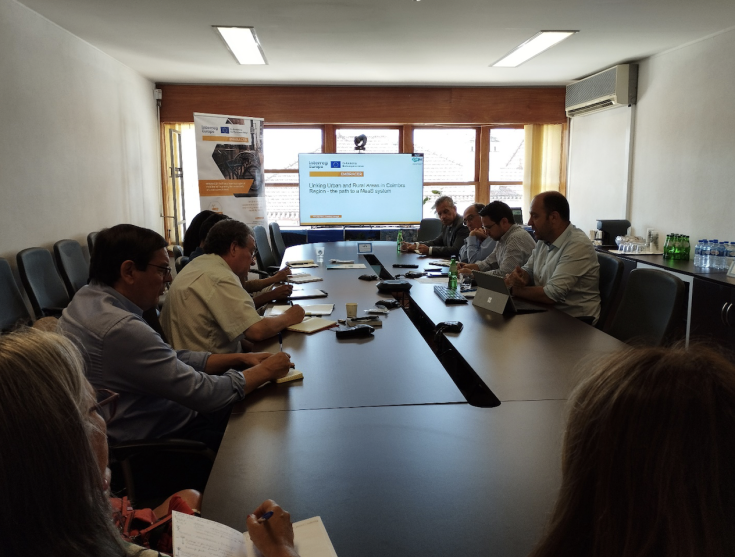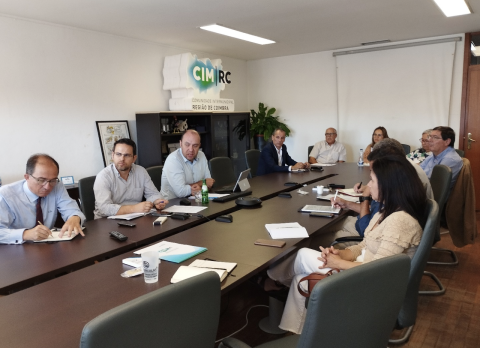1st Regional Stakeholder Group Meeting in Coimbra, Portugal!

The meeting organised under the EMBRACER Project to engage stakeholders in the topic addressed by the project took place in Coimbra, on 26 July 2023, and was held at CIM-Coimbra Region.
The event was attended by different entities such as researchers, transport authorities, managing authority, public transport operators, including the trade union group of taxi representatives.
After a brief introduction to the basic objectives of the EMBRACER project and the vision of how to take advantage of interregional cooperation for the improvement of policy instruments, the representative of CIM-Coimbra Region focused on the challenges and opportunities for the region regarding transport. The idea of a territorial affirmation would be relevant also for citizens, where a public transport network is crucial in a region as heterogeneous as the Centro Region, in particular the Coimbra region. Some ideas for the future were discussed, how to facilitate and contribute to optimise funding instruments in order to improve the mobility service in the region. Given that the region is in a phase of transition of some competences between entities, a problem discussed was related to the potential of the taxi service to be updated in order to complement the existing public transport service, as well as the one that is currently being implemented through the metrobus.
One of the measures pointed out was the possibility of coupling the taxi service to the nearest municipality, rather than the one where you are based. Given the population dispersion, the transport service in low density areas, this measure can be beneficial for citizens. It was also emphasised the need for support to implement new routes, new vehicles to meet the mobility needs of citizens. Regarding on-demand transport, it would be relevant to focus on a study concerning an optimised way of designing the route according to requests and demand. One raised concern was the new pattern observed in the region, particularly in the centre, with an increase in bicycle users as a mode of transport to and from work. Given that the way the city is built can be an obstacle to the development of certain infrastructures, other solutions were discussed such as bicycle lockers, properly secured, especially in more peripheral areas of the city.

Thus, the discussion concluded by noting that it would be important to include in the eco-system the integration of on-demand transport in public transport services - such as buses; create conditions to facilitate the expected growth of users of soft modes, such as cycling. However, as a way to mitigate carbon footprint, stakeholders finally agreed that it will be essential to reduce movement in cities, so that conflicts with vulnerable road users decrease and thus, promote the use of soft modes.
The focus of the Centro Region Operational Programme on active modes is also on points related to digitalisation, integrated ticketing, as well as real-time information on transport services. At this time, it will be unthinkable to bet on equipment and vehicles powered by fossil fuels, so the operational strategy will have to have a sustainable focus and seek to discourage the use of private vehicles. It has become clear that incentives to renew rolling stock will be important. It also emerged that it will be important to review the policy instrument to facilitate the electric part (such as introducing fast charging stations) as well as the hydrogen part, which is still very costly not only in economic but also in environmental terms.
Finally, it was emphasised that any intervention should also extend to the implementation phase, as well as take into account the sustainability of operations. As with any change and transition, dissemination and communication between entities, but also between entities and citizens, is central, which requires segmented, targeted and imaginative communication to drive behavioural change.